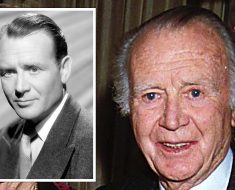
The link between the different hierarchies of personality, sleep patterns and even genetics has been discovered by researchers from the Department of Psychology at the University of Warwick.
A typical example of a morning person is thought to be someone who wakes up naturally at 6am, goes for a jog, showers, has breakfast and is ready for a productive day at work by 9 am. Whereas an evening person struggles to get up in the morning and feels more productive in the evening.
Researchers from the University of Warwick with colleagues from the University of Tartu have published the paper, “Personality Traits Relate to Chronotype at Both the Phenotypic and Genetic Level,” in the Journal of Personality. They analyzed the relationship between sleep timing (chronotype), preference to the morning/evening, and personality traits at a phenotypic and genetic level.
Ultimately, the researchers have found that the relationship between personality and diurnality-nocturnality is partly due to genetic factors.
Using a large-scale sample of participants form the Estonian Biobank researchers asked them to answer questionnaires about their sleep timings and personality, personality was also assessed by someone who knew the participant well. Once answered researchers were able to identify the phenotypic relationships between the sleep and personality.
However they were also able to calculate the genetic correlations through summary statistics of large genome-wide association studies of personality and sleep preferences.
Personalities can be divided into three hierarchies: personality domains, facets and items, researchers analyzed all three, but in particular they found on a domain level that people high in Conscientiousness and low in Openness were associated with being earlier chronotypes (i.e., they went to bed and got out of bed earlier).
On a facet level, researchers found that less straightforward (a facet of agreeableness) and excitement-seeking (a facet of extraversion), yet more self-disciplined (a facet of conscientiousness) people were more likely to have earlier chronotypes. HigheR conscientiousness and lower openness were also genetically related to preference for morningness.
Postgraduate researcher Dr. Anita Lenneis, from the Department of Psychology at the University of Warwick comments:
“Our findings have helped us to come up with two possible pathways of how personality might influence chronotype. Personality traits such as conscientiousness and C5: Self-discipline in particular may influence chronotype through shaping people’s preferences for various social activities and behaviors which in turn, may influence what time people go to and get out of bed, or personality may influence chronotype is through active decisions people make regarding their sleep.
“However, it could also be that chronotype influences personality or that chronotype and personality mutually influence each other. The findings of the genetic correlations support this view but further studies will be necessary to better understand the shared genetic mechanisms between the two constructs as well as the causality of their relationships.”
Source: Read Full Article





